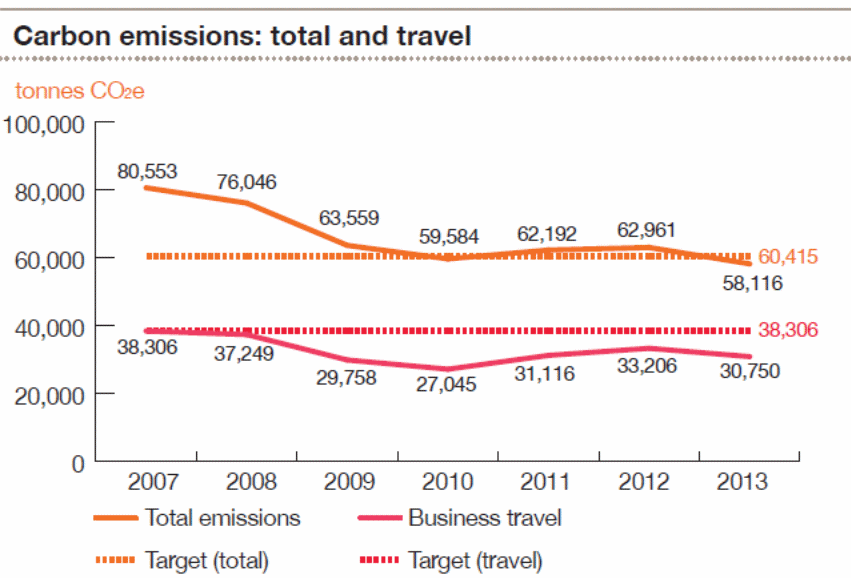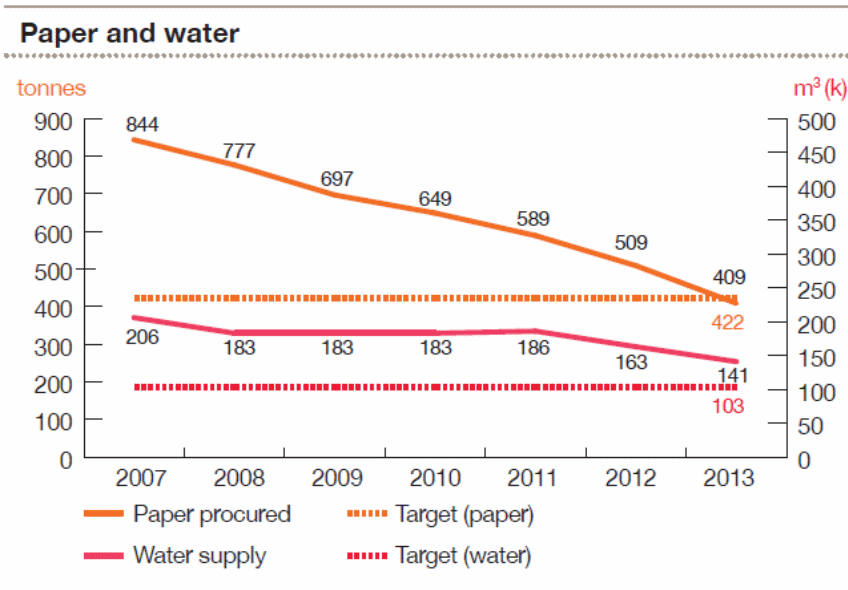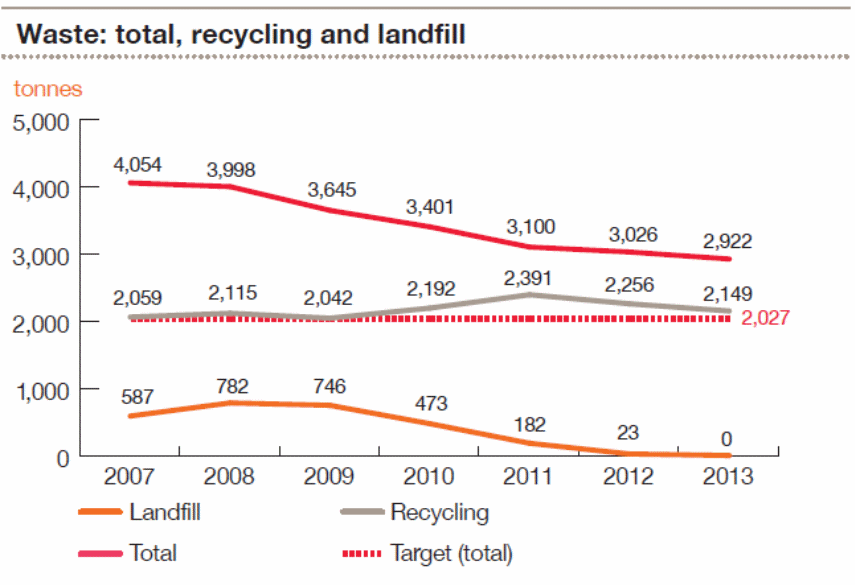Introduction
The advent of globalization has led to the development of international businesses. As a result, the organizations have established operations in many parts of the world. In the 21st century, one of the most important indicators of organizational success is how well businesses are able to establish an international presence (Hill 2003). The most successful businesses usually have international operations. Another factor that has led to the expansion of businesses on the international front is growth in the global transport and communication.
The most important aspect that has fueled the growth is the internet. Organizations now make their strategies on how to reach the global markets that have been established following the aforementioned developments. This research paper looks at PricewaterhouseCoopers as one of the organizations that have enjoyed considerable success on the international front. The paper will give a brief background of the company followed by its detailed analysis. The analysis will feature elements such as its business environment, governance, strategies, and performance among others.
PricewaterhouseCoopers: Background
PricewaterhouseCoopers is an international organization with headquarters in London. This firm offers professional services. Besides, it ranks second in the world in the category of businesses offering professional services according to the latest survey using the latest revenues (PwC, Annual Report 2013). The company can be described as a truly global brand with offices in over 770 cities and branches and operations in over 150 countries and territories (PwC, Annual Report 2013). More than 180,000 people around the world depend on the organization as employees, thus making it one of the largest single multinational employers in the world. The revenues have consistently been on an upward growth for this company, posting revenues of $31.5 billion for 2012 (PwC, Annual Report 2013).
The major contributors for the company revenues include the advisory practice, tax, and assurance practices (Burilovich 2006). The present company was founded in 1998 after a merger between Price Waterhouse and Coopers & Lybrand (PwC, Annual Report 2013). Both companies had existed for about a century before the merger. The result of this merger was the present company formed from the combination of the two names. The company has embarked on growth since the merger. Some of the major changes include the rebranding that it did in 2010 (PwC, Annual Report 2013).
During this rebranding exercise, the company reduced its name to PwC, which is understood to have given it publicity and eased the client’s use of the same (PwC, Annual Report 2013). The company proceeded with international expansion, with one of the largest branches being the PwC United States. This company is well performing in the United States. The local brand (PwC United States) is ranked fifth in the ranking of privately owned companies in the nation (PwC, Annual Report 2013).
PwC has been successful on the global front. It is known to audit some of the leading companies in the world. Most of the international brands have PwC as their main auditor. The company relies heavily on these services. Public institutions in many parts of the world are also dependent on PwC for their audits. The company has established a respectable service delivery system. Assurance services, tax advisory, and other forms of advisory services are the main forms of services that earn the company revenue, with others being financial services and private company services (PwC, Annual Report 2013).
Company Analysis
The analysis of an international organization allows the assessment of issues affecting it, the need for improvement on the global front, and the likely challenges (Hill 2003). This section provides the analysis of PwC using the EGSOP format, which denotes elements such as environment, governance, strategy, organization, and performance respectively.
Environmental Analysis
PwC is the fourth largest firm of its type in the world. The sector in which it operates is a competitive one. The international financial and trading regulation is an important influence on the performance of the organization. Many of its services depend on this regulation. The company engages in corporate social responsibility.
It has established a voluntary service for local communities in which it operates. PwC works in accordance with the laws and policies of the nations and territories within which it operates. Since the company mainly operates in the financial sector, the international factors that affect it include the financial currencies and exchange rates (PwC, Annual Report 2013). The company establishes a strong relationship with organizations that it renders its services with the main aim being to offer quality services.
Governance
PwC has a detailed management and governance structure. The aim of this structure is to influence the performance optimization of the company. The highest level of governance is the executive board, which is tasked with the development and implementation of policies and firm’s strategies (Marks 2012).
The board is expected to communicate the strategic priorities of PwC, with these priorities being used in the planning process within the organization (PwC, Annual Report 2013). A balanced scorecard reporting is a method of choice used in the firm to monitor the segmental contribution of the various departments. Some of the other governance bodies at the organization include the supervisory board and the Public Interest Body (PwC, Annual Report 2013).
Strategy
PwC uses different strategies to maintain competence in the finance and auditing industry. These strategies ensure that it maintains positive performance. The company engages in environmental conservation and corporate social responsibility. It has employed technology in its operations (Marks 2012).
PwC has embraced e-commerce. It frequently uses the internet in its operations as one of the technological strategies (Marks 2012). PwC has assured its shareholders of continuous commitment towards innovation and technology. These elements form the core of its strategy. The strengths that PwC boasts of include the strong brand name that it has created through engaging in efficient and open practices and financial solutions.
PwC focuses on the human resource as a strategy to enhance its operations. It recognizes employee as the most valuable resources in its operations. According to Hill (2003), organizations that establish a close relationship and mutual understanding with employees are often successful in their international ambitions. PwC also applies an effective marketing strategy to improve its operations while ensuring a strong presence on the international front.
Marketing is considered one of the strategies that global firms must adopt to be successful on the global front (Hill 2003). The company also has an effective consumer strategy that is aimed at ensuring that the client is served with the best services. Goals are set at the organizational level, with the employees being expected to internalize them in their service to clients.
Organization and Performance of PwC
Economic Performance of PwC
PwC has been on the road to financial improvement since 2008. Revenues have been growing each year. Although the market is said to be challenging, the company has managed to maintain a steady growth. The revenues grew by 3% for 2013 as compared to 2012. They stood at £2,689 million (PwC, Annual Report 2013). This growth in revenue was considerably lower with reference to the 7% growth that was recorded in the previous year (PwC, Annual Report 2013). The profits for the 2013 financial year stood at £740 million, which was an improvement from the previous year’s profits of £727 million (PwC, Annual Report 2013).
The company has been on a steady performance over the last few years, with this outcome being contributed by the growth in the respective markets that it operates. The global economic performance after the economic crisis has improved, with organizations affording global professional accounting services. This situation has reflected on the growth for PwC, including growth at the local headquarters in the UK (Dawson 2009). Diversification over the last decade has also enabled the organization tap revenues from other markets, including other sectors of the financial industry.
Environmental Performance
The environment is considered an important part of the company’s operations. It has allowed it to develop an environmental policy (Marks 2012). The company is also contributing to the resolution of the environmental problems affecting the global economy. In accordance with the international treaties and agreements, PwC is in the process of reducing its carbon emissions. The target is to reduce these emissions by one fourth with the baseline being 2007 (PwC, Annual Report 2013). There is a reported success in this measure, with the company reducing its carbon emission by over 15% from 2007 (PwC, Annual Report 2013).



Issues
The main issues at PwC include the high competition that is offered by other international brands and the emerging competitors operating smaller auditing firms in the world. According to Hill (2003), competition is a key drive for any company. It allows room for a change in any market. However, PwC has maintained its position in the global economy by making use of the latest technological solutions to stay ahead of its competition. Nevertheless, the high competition in the industry has affected the growth in revenue for PwC, with this effect being reported in the previous section.
The other issues that affect the company are the legal policies that exist in the operating environment. Since the financial systems are tightly controlled in many countries, some organizations have engaged in malicious court cases against PwC, thus leading to a loss of revenue in settling these cases. The company has been involved in legal cases over the last few years, with the examples being the Willie Nelson controversy, the Chuo Aoyama suspension as a partner, Tyco settlement, Satyma case, and the inquiry findings of House of Lords in the UK (Marks 2012). However, these issues are unavoidable in the industry. Therefore, PwC has engaged in the optimization of its quality of services (Marks 2012).
The other issue that is of concern to PwC is the environment. In fact, the same concern is shared with other organizations in the industry and in other industries. However, PwC has developed policies and practices that are aimed at effecting the reduction in pollution and carbon emission that is related to its operations (PwC, Annual Report 2013). The results in tackling this issue are positive. The company has managed to cut its emission by considerable levels. The size of the company at the global front means that it has a greater responsibility in keeping the environment safe, and hence the strategies it is employing in environmental conservation.
Discussion
PwC is an example of a company that has its tentacles on many parts of the world, with its operations being aimed at improving services in the financial sector. The discussion of PwC is an important part of international business studies, as it allows learners to associate this with their careers as well as gaining knowledge on the international business environment (Dawson 2009). PwC has a presence in many parts of the world. Most of its activities are spread across these nations and territories. Besides, the global challenges facing any international organization are also present in the organization. These challenges are tackled through the strategies that the company uses (Marks 2012).
PwC has recorded improved performance on all fronts, with the revenues growing consistently over the years. There are also reported challenges in revenue growth, with the competition being the main challenge for PwC. According to Hill (2003), the international business environment is competitive, and that any organization operating in such surroundings should constantly review its policies to ensure that they (surroundings) are working in its favor. Some of the main strategies that PwC uses to maintain its dominance and competitiveness on the international front include efficient use of technology and appropriate employee-client relationship practices.
Way Forward
PwC has a number of options in the expansion on the global front. These options are important in ensuring its success. The global economy is rapidly growing. The growth is expected to remain intact over the next few years (Marks 2012). The financial sector is responsible for a large proportion of the growth on the international market. This means that PwC has larger chances of improving its operations. Auditing is also becoming a requirement for organizations in different parts of the world, with governments requiring the use of certified companies. Therefore, the market is likely to experience growth over the next few years. PwC should establish itself as a global brand with the capability of representing the interests of its clients while offering the best services.
Conclusion
In conclusion, the assessment of international brand is important to the study of international businesses. This paper has presented a case study of PricewaterhouseCoopers. Specifically, it has assessed its international operations. The organization emerges as a true example of an internationally operating company with branches and operations in many parts of the world. It also has a diverse human resource that is drawn from the different cultures in the areas that it operates.
PwC has efficient use of business strategies for an international organization. In fact, its success in using these strategies has enabled it maximize on competitiveness and productivity. The case study has also established that PwC is relevant to the financial markets in many parts of the world. Some of the issues affecting it are common to the international brands. The solutions that PwC has for some of the issues are appropriate as provided in the paper.
References
Burilovich, L 2006, PricewaterhouseCoopers Guide to Tax and Financial Planning, Routlege, London.
Dawson, D 2009, PwC, Deloitte, E&Y, and KPMG: Big 4 employees modern indentured servants, Web.
Hill, W 2003, International business: competing in the global marketplace, McGraw-Hill/Irwin Boston, Massachusetts.
Marks, P 2012, ‘One minute with Jay Abbott. (Director at PricewaterhouseCoopers) (Interview)’, New Scientist, vol. 1 no. 2854, p. 29.
PwC, Annual Report 2013, Web.